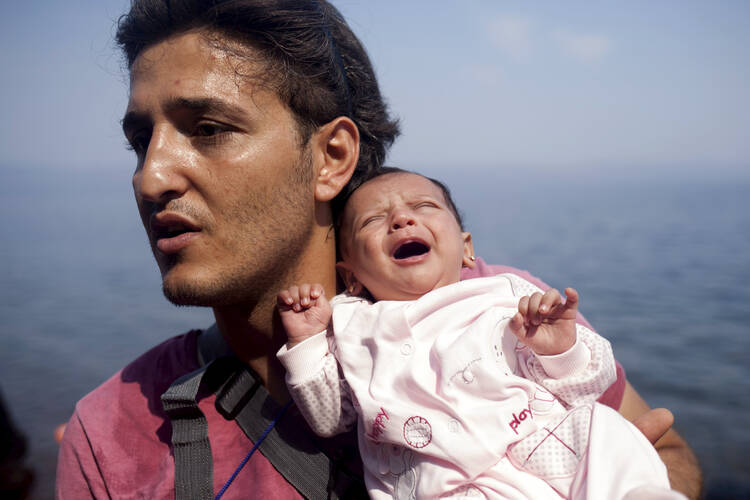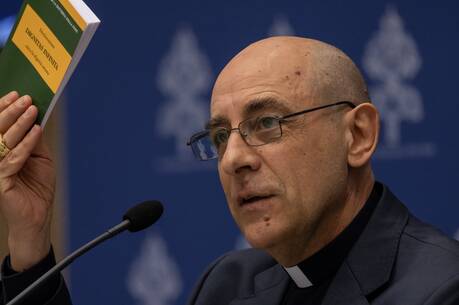The influx of migrants and refugees to Europe as a result of poverty, instability and the wars in the Middle East is becoming a defining crisis of our time, a crisis Europe, with the notable exception of Germany, is failing. So is the United States, which bears a large responsibility for creating the instability that so many in the Middle East are fleeing. An ocean protects the United States from being in the direct path of the refugees and migrants, but the United States has a moral obligation to accept more refugees from the Middle East than it does now and to exert more strenuous diplomatic efforts to end the Syrian civil war than the half-hearted, doomed-to-failure proposals it’s sponsored so far.
According to the United Nations High Commissioner for Refugees, worldwide almost 60 million people have fled their homes because of conflict and persecution, constituting the largest number of refugees the world has seen since World War II. Included in that figure are the internally displaced, people have been forced to leave their home but are still living in their country of origin. Only a small fraction of the total number of refugees, about 6 percent, is in Europe. The reluctance of affluent countries such as the United States, the United Kingdom and many nations in Europe to shelter the current wave of refugees, leaving the burden to Germany and to other, poorer countries nearer the epicenter of the conflict zones, is both understandable and shameful.
Under pressure, Prime Minister David Cameron agreed Sept. 4 that the United Kingdom will accept more refugees from the Syrian civil war but did not disclosed how many more it will take. Reuters cited a spokeswoman for the U.N refugee agency in Geneva saying the United Kingdom would take in 4,000 more Syrian refugees. Thus far, the country has accepted 5,000 Syrians. The United States has taken in approximately 1,400 Syrian refugees and has committed to taking in another 5,000 to 8,000 more. These are pitifully small numbers compared to the scale of the need and to the responses of Jordan, Lebanon and Turkey. In Lebanon, which has a million Syrian refugees, one in four people is now a refugee. In Turkey, there are about 1.9 million Syrian refugees.
The refugee problem Europe is now facing is compounded by migrants seeking better economic opportunities than those afforded in their home country. It’s estimated that about 20 percent of those now flooding into Europe are migrants, and 80 percent refugees from wars in Libya, Sudan, Afghanistan and Syria. Granted, not everyone who wants to immigrate to Europe can be accepted; some of the migrants may need to be turned back. But Europe can do a better job of streamlining asylum application procedure, agreeing on common norms as regards who is considered a refugee, and accepting and sharing the burden of refugees among the countries in the European Union. It can press for viable diplomatic solutions to the wars that are bringing so many refugees to the shores of Greece and Italy.
Hungary has seen thousands of migrants and refugees coming into the country from Serbia on their way to Germany.* This week Hungarian prime minister Viktor Orban warned that the refugees and migrants entering Europe, most of them Muslim, threaten the continent’s Christian identity. He went on to call the crisis a German problem, not a European problem, and to remark, "Or is it not already, and in itself, alarming that Europe's Christian culture is barely able to uphold Europe's own Christian values?"
When claims about Christian identity and Christian values become appeals to religious chauvinism and excuses for heartlessness, something is terribly wrong with the definition of Christianity being advanced. But Orban is right that the flood of migrants and refugees is a challenge to Christians. It is a moral challenge to everyone, Christians in Europe and the United States especially, to overcome selfishness, fear and religious prejudice. If we don’t, we will look back on this era the way we do on the 1930s when Jews fleeing persecution in Nazi Germany were denied refuge. “No room at the inn.” Those are not words Christians should be uttering. The fact that many of the richest countries in the West are the ones most unwilling to take in desperate people in need becomes a sad comment on our values, Christian and otherwise.
* This blog has been revised to reflect the fact that Hungary has reversed its policy on putting people into migrant camps and is declaring it will now be busing migrants to the border.








